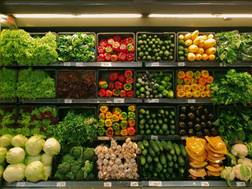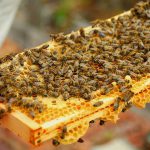
Press release
Eating nutritious meals is important for our health, but with the rising cost of living, most South Africans believe that healthy food comes at a higher price. As we celebrate National Nutrition Week from 09-15 October, Super Sun has partnered with a local dietitian to share some tips for buying nutritional food that doesn’t cost a fortune.
“Good nutrition is all about eating a healthy, balanced diet to power your body with fuel and strength. Our bodies use the nutrients that come from the food we eat to keep us alive. That’s why planning to make nutritious meals is so important when we shop for groceries,” says Sibongile Mooko, Marketing Executive at Premier FMCG, brand owner of Super Sun. “Unfortunately, research shows that when health is not often a factor in dietary choices, it can be due to affordability and a lack of knowledge around food groups.1 We would like to change that,” she adds.
With a little bit of planning, you can put your family’s health first and cut back on spending. Here are five tips for cost-effective nutritional shopping:
-
Be organised
Know which vegetables are available in your garden each season, and make sure to shop for products or food items that complement them.
You can save a lot of money and buy healthier foods if you plan your meals for the week ahead. Write a grocery list before going to the shop, and make sure you only buy what is on your list. Adding healthy staples (like fortified maize meal) with longer shelf lives to your trolley means you are buying nutrient-rich products that are affordable too.
“Maize-based starch options are affordable and provide healthy sustenance. Look for those that have been fortified, as this means they have the benefits of added nutrients. For example, a fortified maize-based product should be the basic part of all meals. It helps provide the body with the energy required daily to enhance performance and overall good health. Maize meal for lunch or dinner will also keep you fuller for longer,” suggests local Dietitian, Ria Tintswalo.
-
Smart shopping
Find out which supermarkets in your area have the best deals and combo specials, and ask about loyalty cards for extra savings. Don’t ever shop when you are hungry, as you will likely buy things you don’t need. Look for the latest sell-by date when purchasing fresh produce, and scan the store shelves for cheaper options – the most expensive items are usually placed at eye level. Canned, packed or frozen goods are often cheaper, so keep that in mind if you have freezer space. Also, remember that buying and cooking in bulk is an excellent way to save money.
-
Buy carbohydrates that are high in nutrients
Maize-based products that are fortified with vitamins and minerals are not only cheaper than other starches but will also give your family lots of energy and keep them healthy. Combining these carbs with fresh vegetables from your garden is an excellent way to serve nutritious meals for a balanced diet.
-
Join grocery stokvels
With the rising cost of food, consider joining a stokvel with other members of your community to buy basic non-perishables such as super maize meal, canned foods and oil. Purchasing these items on special and in bulk will help to stretch your income as you take advantage of cheaper groceries that last longer.
-
What you eat matters
There are many ways you can add healthy foods to your meal plan that don’t cost too much. Vegetables are the obvious choice for a balanced diet. Buy them in bags rather than individually to save costs. Purchase cheaper proteins like beans and lentils, and add them to stews and soups to help stretch your meals further. Fortified food, like maize meal, is affordable and packed with extra nutrients to improve your health.

Above: With the right planning, nutritional shopping doesn’t have to cost a fortune.
Adding a maize-based product to your diet is an affordable way to nourish your body for good health. It’s no wonder most South Africans love a good ‘pap’ with lunch or dinner. “Super Sun’s Instant Maize Porridge is fortified with 12 vitamins plus 2 minerals, iron and zinc. It is high in energy and easy to prepare for that tasty and nutritious breakfast,” says Mooko.
“We know that there is a huge need for affordable healthy food options as well as better education around eating well. We have been providing budget-friendly, nutrient-rich meals for the past 50 years. Super Sun is proud to keep tummies full, energy levels high, and spread awareness around making healthier choices,” concludes Mooko.
Photo by Veleria Boltneva on Pexels
Relevant Agribook pages include “Food security” and “Maize (corn)“.







